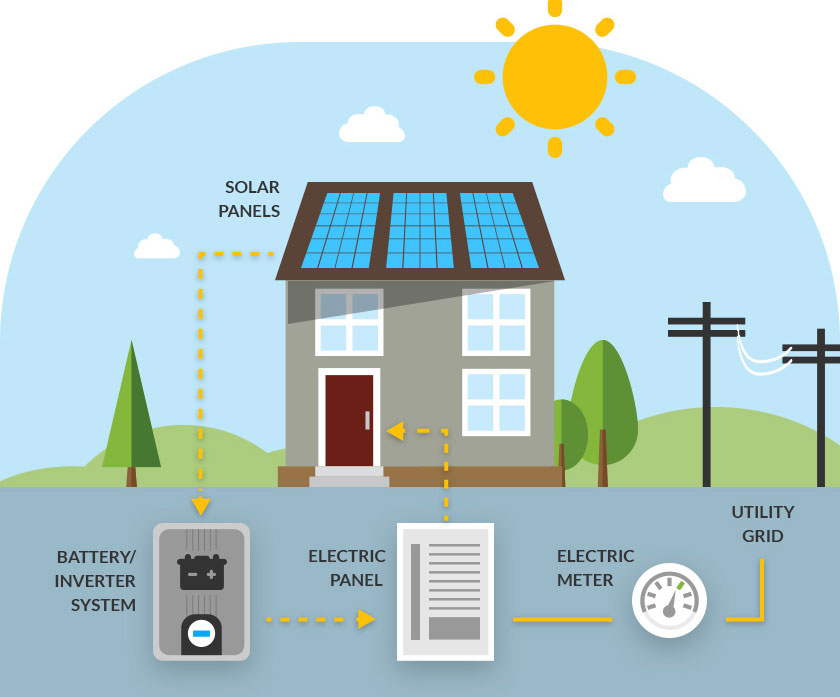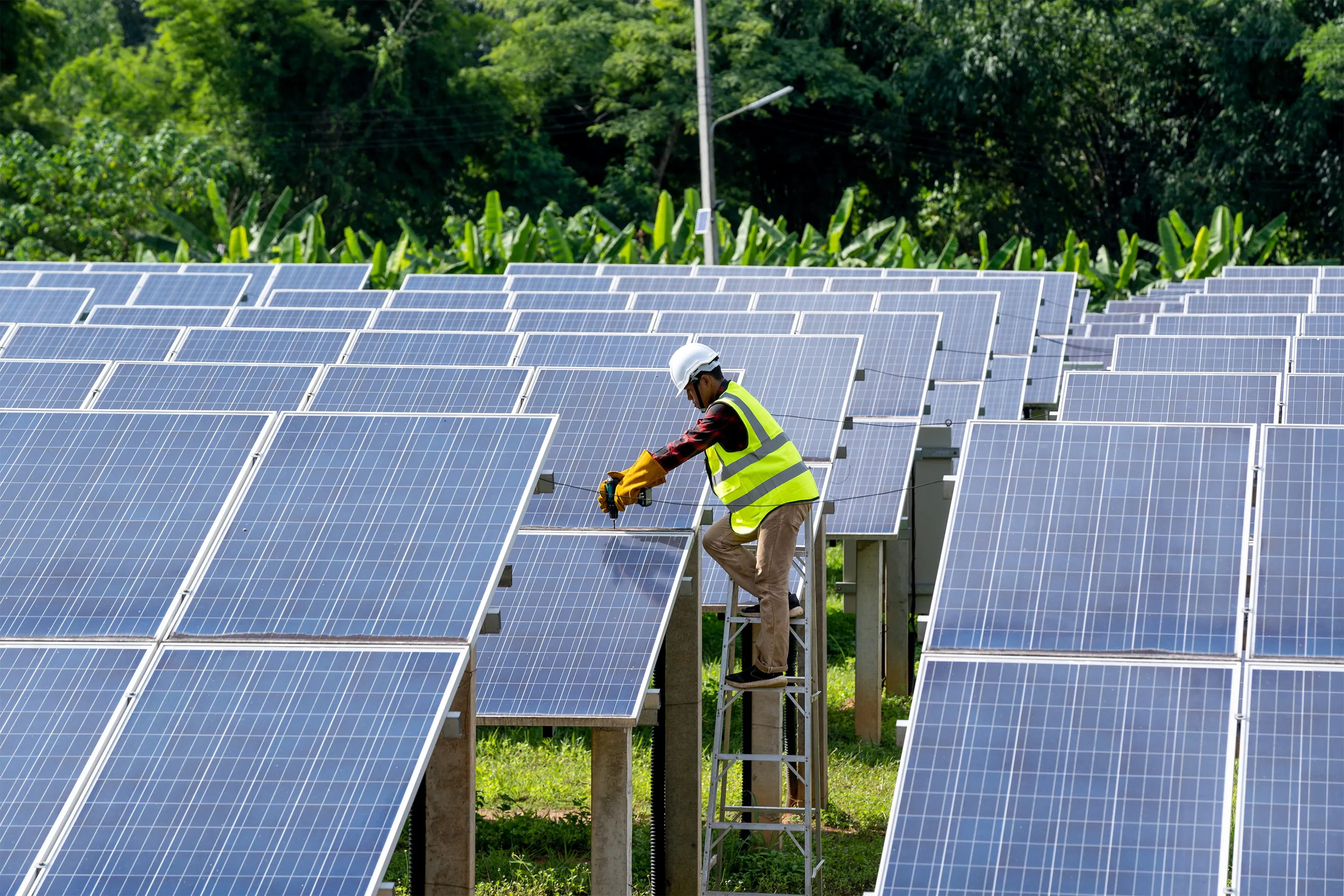Best Solar Panel Company Virginia Fundamentals Explained
Best Solar Panel Company Virginia Fundamentals Explained
Blog Article
Solar System Contractor Virginia: Lumina Solar Focuses On Providing Advanced Photovoltaic Solutions For Houses And Organizations
History and Establishing
Have you ever questioned how a solar panel business springs from a simple stimulate of inspiration into a powerhouse of renewable resource? It typically begins with a vision-- one sustained by a mix of innovation, determination, and a pinch of serendipity. The journey of numerous solar companies mirrors the advancement of the technology itself: from bulky, inefficient panels to streamlined, high-efficiency marvels harnessing the sun's bounty.
The Early Days
In the late 20th century, when solar power was still a specific niche concept, pioneers planted seeds for what would end up being a worldwide movement. Imagine a small workshop filled with curious engineers, tirelessly try out photovoltaic cells. Their enthusiasm was palpable, often driven by a desire to fight climate modification and reduce reliance on nonrenewable fuel sources.
One such anecdote has to do with a founder who, motivated by a camping journey, understood that even in remote locations, the sun could power important devices. This basic observation stimulated a business's objective to democratize access to here tidy energy.
Establishing Principles

- Development: Continuously pressing the borders of solar innovation to enhance effectiveness and durability.
- Sustainability: Dedicating to environment-friendly production and lowering carbon footprints.
- Availability: Making renewable resource services budget-friendly and useful for everyday users.
Milestones in Growth
| Year | Key Event |
|---|---|
| 1985 | Company established in a little garage, concentrating on research study and development. |
| 1995 | Business solar panel product launched, getting regional attention. |
| 2005 | Broadened to international markets, accepting worldwide renewable resource objectives. |
| 2015 | Introduced advanced photovoltaic panel technology with boosted energy conversion. |
Isn't it interesting how these incremental steps, frequently neglected, form the energy landscape today? The photovoltaic panel company story is not simply about innovation; it has to do with an unrelenting quest for a brighter, cleaner future.

Developments in Solar Panel Technologies
Ever observed how some photovoltaic panels gleam brighter and last longer? It's not magic; it's the science of photovoltaic effectiveness. Modern photovoltaic panel companies invest heavily in innovations like bifacial cells, which catch sunshine from both sides, increasing energy harvest without expanding roofing area. Have you ever wondered why some panels carry out much better on cloudy days? That's due to advances in thin-film solar technology, which thrives under diffused light conditions.
Product Variations Tailored to Unique Needs
One size never ever fits all. Photovoltaic panel suppliers now use:
- Monocrystalline panels for maximum performance and sleek visual appeals, perfect for space-constrained rooftops.
- Polycrystalline panels, which provide a cost-effective alternative without sacrificing too much output.
- Building-integrated photovoltaics (BIPV), combining solar tech effortlessly into architectural elements like windows and exteriors.
Choosing the ideal product isn't almost upfront cost; it has to do with matching your environment, energy goals, and long-term cost savings. For example, homes shaded by trees need panels that master low-light scenarios, something lots of neglect up until energy expenses climb up suddenly.
Technical Tips for Ideal Choice
- Evaluate the temperature coefficient-- lower worths indicate panels lose less performance on hot days.
- Search for panels with enhanced anti-reflective finishings to optimize light absorption.
- Think about the panel's guarantee not just for defects, however for guaranteed power output over decades.
- Do not ignore the importance of the inverter technology matched with the panels; it can make or break your system's efficiency.
Beyond Panels: Emerging Patterns
Think of solar panels that change their angle automatically to chase the sun-- tracking systems are becoming more available, increasing yield significantly. Or solar tiles that blend undetectably into your roofline, changing your home into a quiet, self-sufficient power generator. These innovations are improving what a photovoltaic panel business offers-- not just items, however incorporated energy services.
Market Existence and Global Operations
Ever question why some solar panel business appear to grow up in every corner of the world while others hardly make a ripple? The difference lies not simply in technology however in mastering the art of navigating diverse markets. Expanding globally is like planting seeds in various climates-- you should understand each environment's distinct conditions to grow.
Take, for instance, the detailed dance of logistics and supply chain management. Shipping panels midway throughout the world isn't simply about distance; it has to do with timing, customs, tariffs, and adapting to regional demand fluctuations. A business with robust international operations anticipates these variables, ensuring panels arrive on schedule without pumping up costs. This insight is no small accomplishment and often separates industry leaders from fans.
Key Techniques for Expanding Market Presence
- Localized production: Establishing production hubs near target audience lowers shipping hold-ups and import intricacies.
- Strategic partnerships: Collaborating with local companies speeds up market penetration and develops trust.
- Adaptive item style: Customizing photovoltaic panel tech to weather, sun strength, and facilities subtleties enhances performance and approval.
What about the human aspect? Photovoltaic panel companies operating globally must fix up cultural differences and regulative nuances without forgeting their core objective. What works in a sun-drenched desert might falter in a humid coastal region. In some cases, the most innovative option is simply listening-- absorbing local insights to fine-tune innovation and approach.
Specialists typically recommend a phased rollout rather than a shotgun expansion. Why run the risk of overextension when determined development builds sustainable momentum? Scaling carefully means balancing aspiration with functional durability - Solar Panel Company Virginia. In the race for sustainable energy dominance, perseverance can be as important as speed.
Ecological Impact and Sustainability Practices
When photovoltaic panels initially emerged, many assumed they carried absolutely no ecological baggage. However, the reality is more nuanced. The production of photovoltaic cells includes rare earth metals and energy-intensive processes, which can leave a sizable carbon footprint before the panels even reach rooftops. The true ecological expense depends greatly on the sustainability practices utilized by the photovoltaic panel business throughout the lifecycle of their items.
How often do we stop briefly to consider what occurs to photovoltaic panels at the end of their helpful life? Unlike batteries or electronics, photovoltaic panels can last 25-30 years, however disposal and recycling paths remain underdeveloped in many areas. A business devoted to reducing environmental damage will have a robust prepare for recycling photovoltaic materials, salvaging important silicon, glass, and metals to avoid landfill build-up.
Secret Sustainability Methods
- Making use of low-impact manufacturing techniques that decrease water and energy consumption.
- Carrying out closed-loop systems to recycle production waste back into brand-new panels.
- Engaging in transparent supply chain audits to make sure ethical sourcing of raw products.
- Creating panels for simpler disassembly to assist future recycling efforts.
It's worth keeping in mind that some solar companies have pioneered innovative methods, such as incorporating naturally degradable components or utilizing less toxic chemicals during fabrication. This not just decreases ecological pressure but likewise sets a precedent for the market. The concern stays: can the solar industry genuinely pivot towards a circular economy model without sacrificing efficiency or cost?
Expert Tips for Assessing Sustainability
- Inquire about the company's commitment to carbon-neutral manufacturing and whether they balance out emissions.
- Examine if they partner with accredited recycling facilities committed to solar panel waste.
- Look for openness reports detailing ecological effects and sustainability objectives.
- Think about the longevity and service warranty of panels as an indirect procedure of resource performance.
In the end, going with solar power must suggest more than just slashing electrical energy expenses; it's about supporting a future where energy is collected responsibly and waste is attentively managed. Photovoltaic panel companies that accept this philosophy not only brighten homes however also cast a brighter light on sustainable development.
Report this page